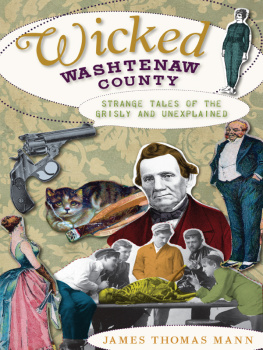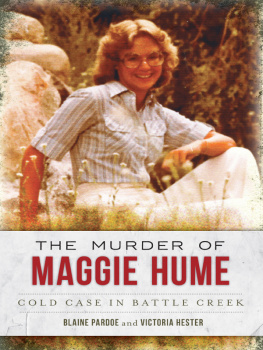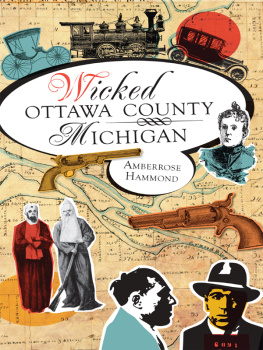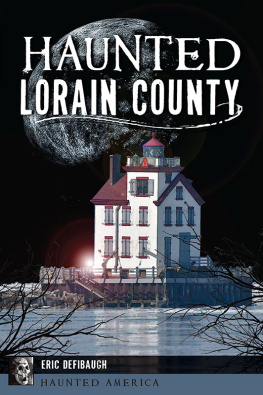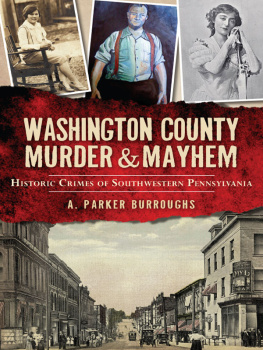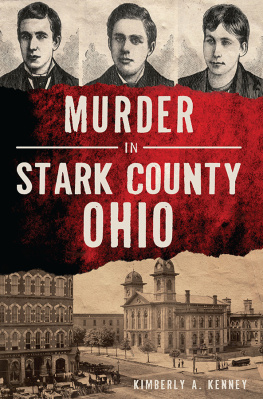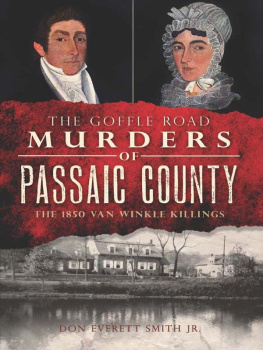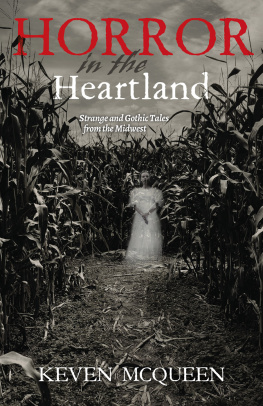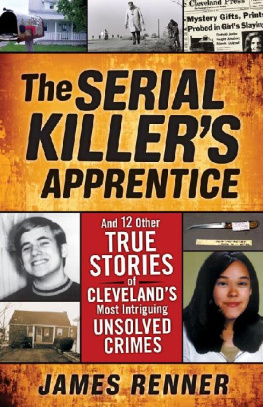

Published by The History Press
Charleston, SC 29403
www.historypress.net
Copyright 2010 by James Thomas Mann
All rights reserved
Some cover images from the collection of Laura Bien.
First published 2010
e-book edition 2012
ISBN 978.1.61423.415.9
Library of Congress Cataloging-in-Publication Data
Mann, James Thomas.
Wicked Washtenaw county : strange tales of the grisly and unexplained / James Thomas Mann.
p. cm.
Includes bibliographical references.
print edition ISBN 978-1-59629-912-2
1. Washtenaw County (Mich.)--History--Anecdotes. 2. Washtenaw County (Mich.)--History, Local--Anecdotes. 3. Washtenaw County (Mich.)--Social life and customs--Anecdotes. 4. Washtenaw County (Mich.)--Biography--Anecdotes. 5. Violence--Michigan--Washtenaw County--History--Anecdotes. 6. Death--Michigan--Washtenaw County--History--Anecdotes. 7. Curiosities and wonders--Michigan--Washtenaw County--History--Anecdotes. I. Title.
F572.W3M36 2010
977.435--dc22
2010020425
Notice: The information in this book is true and complete to the best of our knowledge. It is offered without guarantee on the part of the author or The History Press. The author and The History Press disclaim all liability in connection with the use of this book.
All rights reserved. No part of this book may be reproduced or transmitted in any form whatsoever without prior written permission from the publisher except in the case of brief quotations embodied in critical articles and reviews.
Contents
Foreword
Two sweet ladies waved at me from across the Ypsilanti Farmers Market in the Freighthouse one Saturday morning in the early 1980s and said they had somebody they wanted me to meet. The subject of their fascination stood nearby, clutching an overstuffed manila envelope and looking scared to death. He has some stories you might like to run in the Depot Town Rag, they proffered, and he timidly held out a bundle of about ten pounds of paper.
Close inspection proved that his collection was tales of terrible deaths suffered at the railroad crossing in Ypsilantis Depot Town. Buoyed by the popularity of Michael Lesys 1973 book, Wisconsin Death Trip, James Thomas Mann contended that such tragedies were common to every community, and he suggested that interest in Ypsilantis bad news might prove just as popular with our loyal readership. We ran the first series our little neighborhood Rag had ever seen, and it continued for many months with great response from our readers.
Lesys book was based on a collection of late nineteenth-century photos from Jackson County, Wisconsin, made by Charles VanScheick, mostly from stories of crime, disease and mental illness in Black River Falls. In 1975, Conrad Susa composed an opera on the theme titled Black River. In 1994, the band Static-X used the same title for its thrash metal album. In 2000, it was made into a black-and-white documentary movie. Australian author Rod Jones cites Wisconsin Death Trip as an inspiration for his novel Billy Sunday, which was described as The Great American Novel by the Boston Globe.
Jamess series in the Rag had a narrower focus. It was about people who were run over by the steam engines passing from Detroit to Chicagomore direct and with more impact than those subtle tales from the other side of Lake Michigan.
James Manns current historical interests seem to be following the same path but without his having to leave Washtenaw County. Like Wisconsin Death Trips theme, Manns collection of bad news is terribly local and terribly terrible. Bad stuff happens to good people; its a constant theme. It sells newspapers, too. Mann easily fits the theme established by the films director, James Marsh: I wanted to convey in the film the real pathos contained in a four-line newspaper report that simultaneously records and dismisses the end of someones life.
Just as in Manns Depot Town Death Trip series in the Rag, the tales from Wicked Washtenaw County help us to see our place in time: no better, no worse, no different than the tough times suffered by others in this same place a century or more ago. A quarter century after publishing his newspaper series of grisly gore at the railroad tracks, we all cross the intersection of East Cross, North River and the railroad tracks a little more carefully.
Wicked Washtenaw County, too, helps us to examine the quality of our own situation and think beyond the present as we are crossing the tracks of the rest of our lives.
Tom Dodd, editor
Depot Town Rag, Ypsilanti, Michigan, 2010
Acknowledgements
I wish to say thank you to all those who helped to make this book possible. I am grateful for all the help I received from Al Rudisill, president of the Ypsilanti Historical Society; Gerry Pety, archivist; George Ridenour, who helped fill in some of the blanks; and Derek Spinei. I am also grateful for all the help I received from the student workers at the University of Michigan Microfilm Room at the Grade Library, who put up with my repeated questions as they tried to teach me how the equipment worked. I must also say thank you to Tom Dodd for proofreading the work and for the foreword.
Death of Patrick Dunn
What may have been the first murder committed in Washtenaw County occurred on the morning of April 24, 1843. That morning at about 6:00 a.m., Jacob Vandawarker was on his way from his house to his shop when he heard the report of a gun go off. The sound was off to his right, coming from the Irish settlement of Ann Arbor. Soon after, Vandawarker heard someone shouting as if in distress. He also saw others running in that direction and saw Patrick Dunn walking about, holding his hands to his side, as he shouted, Murder, murder! Dunn also shouted, I am shot, and added that it was Charles Chorr who had shot him. Vandawarker could see Chorr standing his doorway.
At this time, a James Weeks came up and asked Dunn what was the matter. To this Dunn said that he had been shot and he wished someone would keep an eye on Chorr and take care of him. To this Dunn added that he was shot and must die and wanted a place to lie down. He was told he had better go to the house, as he was in front of the place where he lived. Dunn again cried, Murder, and said that if the Almighty God came down upon him, Charles Chorr had shot him. Then Dunn again added that he must die.
Washtenaw County sheriff Peter Slingerland arrived on the scene between 6:00 and 7:00 a.m. and entered the home of Charles Chorr. There he found Chorr at the breakfast table, and he may have been helping his children at the table. Chorr asked Slingerland if he could finish his breakfast. Slingerland noted that Chorr showed no disposition to get away. He found Chorr quiet and peaceable. There was nothing as far as Slingerland could see that was unusual in his conduct or appearance. In the house, Slingerland found three guns, one of which was a smoothbore rifle. This gun was unloaded and appeared as if it had recently been fired. There was a strong smell of fresh burned powder. Slingerland was handed two bullets found by Vandawarker. Dunn died the next day, about twenty-nine hours after the shooting. Before he died, Dunn made a dying declaration that Chorr had shot him.
They both have a wife and several children left to mourn this awful occurrence, reported the Argus of April 26. A coroners inquest was held on the body yesterday and a verdict of willful murder rendered.
Next page
